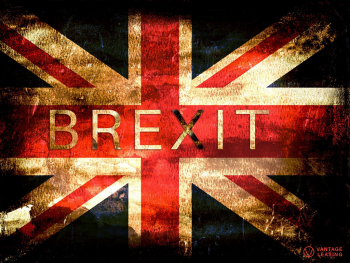Cost of motoring soars since EU referendum
New research shows the cost of owning and running a car in the UK has soared since the June 2016 referendum on Britain leaving the EU.
The research, conducted by Vantage Leasing, found that political uncertainty and a weakened pound have played their part in causing key motoring costs to rise higher than the rate of inflation.
The Vantage Leasing report – analysing various car ownership costs – shows showroom prices have rocketed since the UK voted to leave Europe, with the average cost of a new car increasing by 12.3%, according to figures published by the Office for National Statistics (ONS) as part of its consumer price index.
Vantage Leasing cites the example of a Vauxhall Corsa costing 12.4% more in June 2019 than it did in November 2016 – rising from £12,480 for the Corsa 1.4i (75PS) Design 5dr to £14,025.
The cost rises have been blamed on increased importing and raw material costs due to the falling value of the pound, which manufacturers have compensated by raising list prices and reducing customer discounts.
Insurance is another key cost that has risen, with figures from Confused.com showing the average car insurance premium rise 6.2% in Q3 2019 from Q3 2016, to £783.
Maintenance costs have also risen. The average cost of replacement car tyres has increased 6.4% since July 2016, while the cost of spares and accessories has jumped by 8.7%. The cost of vehicle maintenance and repairs has jumped 9.2%, added Vantage Leasing.
However, the price of fuel has fluctuated since the referendum, but has still risen overall with the average price for a litre of premium unleaded petrol in June 2016 costing £1.16 compared to £1.27 in October 2019 – a 9.2% increase. Diesel has risen even more sharply, increasing from £1.19 to £1.32 over the same period – an 11.1% jump.
Despite increased costs detailed above, Vantage Leasing points out some reductions, such as used car prices dropping, with data suggesting that the average second-hand car cost 4.4% less in October 2019 than in July 2016.
Aside from the cars and their associated costs rising, domestic and commercial energy prices have risen steeply with ONS figures showing a 14.1% rise in the cost of electricity, gas and other fuels since July 2016.
A sliver lining, perhaps, is that average wages have increased since the Brexit vote, with average weekly wages rising at a higher rate than inflation, with a growth rate of 2.5% in July 2016 to 3.6% in September 2019. The rate of inflation has increased from 0.9% to 1.5% over the same period.
“Since the Brexit referendum was held three and a half years ago, there has been a gradual but very tangible increase in the cost of running a car,” said James Buttrick, marketing manager of Vantage Leasing.
“With so much uncertainty around the details of the UK’s departure from the EU, the automotive industry has found itself one of the worst affected. It’s hard to see that getting any better for the industry or the motoring consumer as we finally head towards Brexit.”













